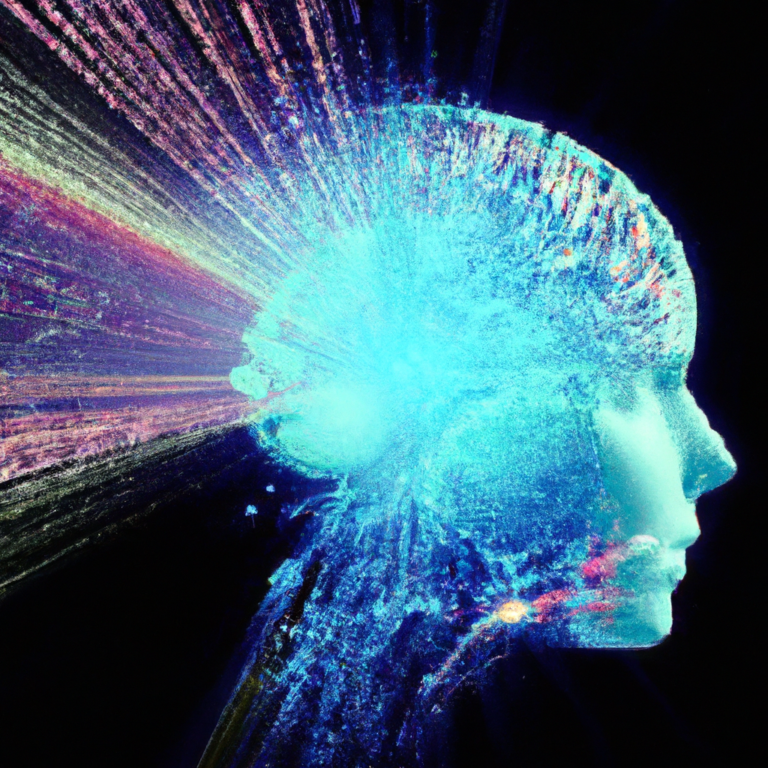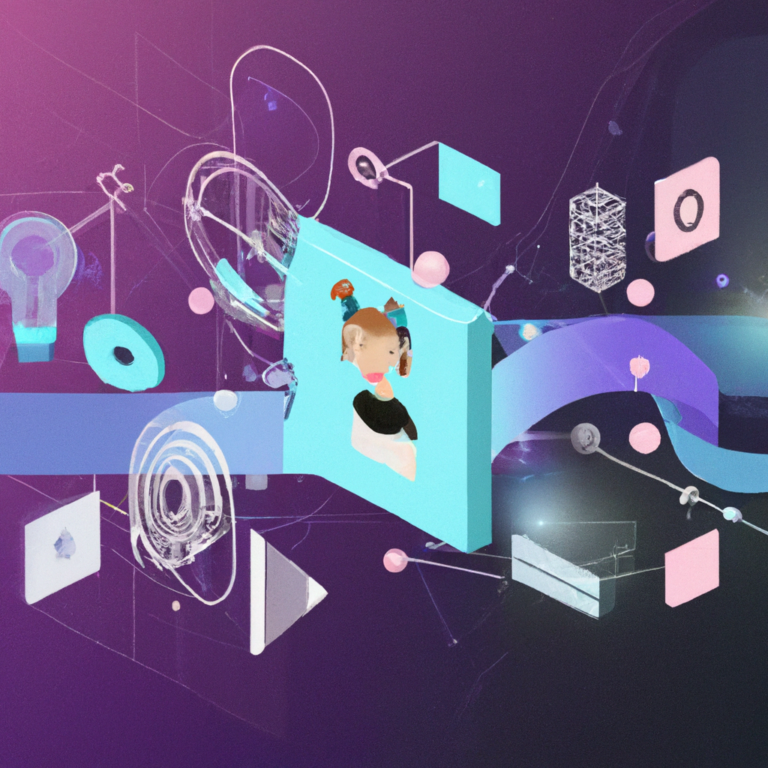The AI Future That We Want
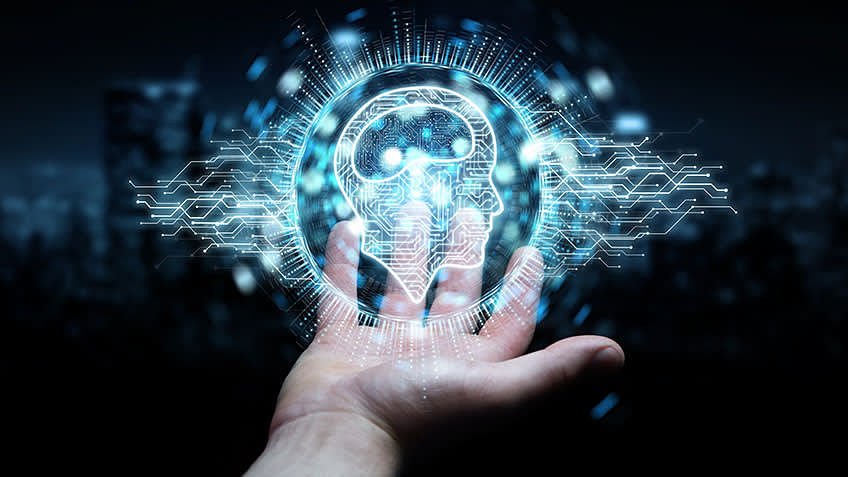
Imagine a future filled with artificial intelligence (AI) technologies that revolutionize our lives in ways we could only dream of. From personalized virtual assistants that anticipate your needs, to self-driving cars that make commuting a breeze, the limitless potential of AI is both exciting and awe-inspiring. In this article, we will explore the AI future that we envision, one that is driven by trust, transparency, and ethical practices. Join us as we envision a world where AI enhances our lives without compromising our values and privacy.
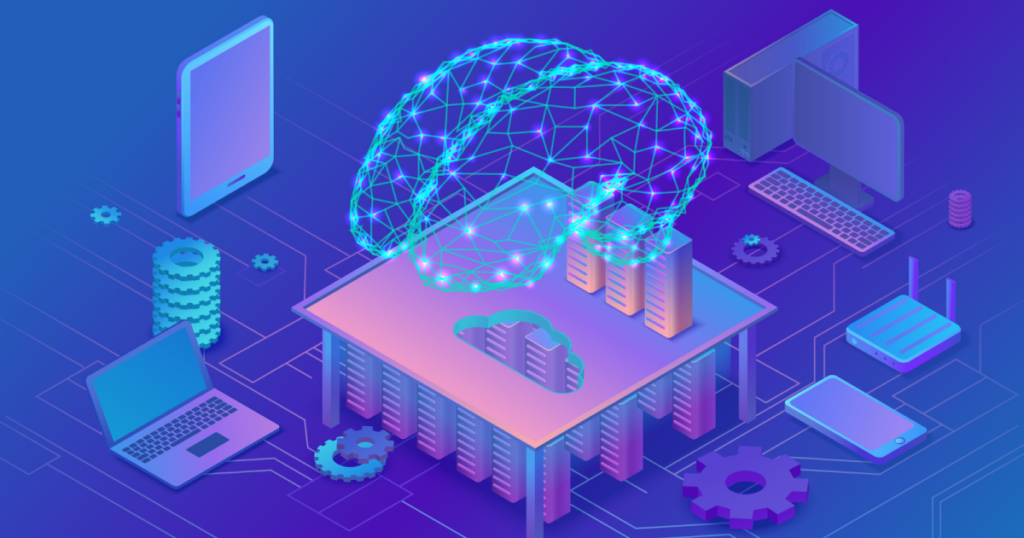
This image is property of builtin.com.
Ethical Considerations
Data Privacy and Security
In an AI-driven world, data privacy and security must be given top priority. With the vast amount of data being collected and processed, it is crucial to ensure that personal information is protected from unauthorized access and use. Stricter regulations and robust encryption techniques can help in safeguarding sensitive data. Additionally, organizations should be transparent about their data collection practices and obtain informed consent from individuals before collecting their data.
Bias and Fairness
AI systems can inadvertently perpetuate biases if not carefully designed and tested. It is important to ensure that algorithms do not discriminate against individuals based on factors such as gender, race, or age. Bias detection and mitigation techniques should be an integral part of AI development, and diverse datasets should be used to train models, ensuring fair and unbiased outcomes.
Transparency and Explainability
As AI systems become more sophisticated, it is crucial to ensure transparency and explainability. Users should have a clear understanding of how AI systems make decisions, and AI models should be able to provide explanations for their outputs. This will not only enhance trust in AI technologies but also enable users to hold AI systems accountable for their actions.
Economic Implications
Job Displacement
The increasing adoption of AI technologies has raised concerns about job displacement. While some jobs may be automated, new opportunities for employment are also expected to emerge. It is essential to provide adequate support and retraining programs for individuals whose jobs are at risk due to automation. By reskilling and upskilling the workforce, we can ensure a smooth transition and mitigate the economic impact of job displacement.
Workforce Reskilling
To adapt to the changing job landscape, reskilling the workforce is crucial. AI technologies can provide opportunities for workers to acquire new skills and knowledge, enabling them to participate in the AI-driven economy. Governments and organizations should invest in training programs that equip individuals with the necessary skills to thrive in the age of AI.
Income Redistribution
As AI advancements drive economic growth, it is important to address the issue of income inequality. Policies focused on income redistribution can help ensure that the benefits of AI are shared more equitably. By providing social safety nets and implementing progressive taxation, we can create a more inclusive society where everyone benefits from the AI revolution.
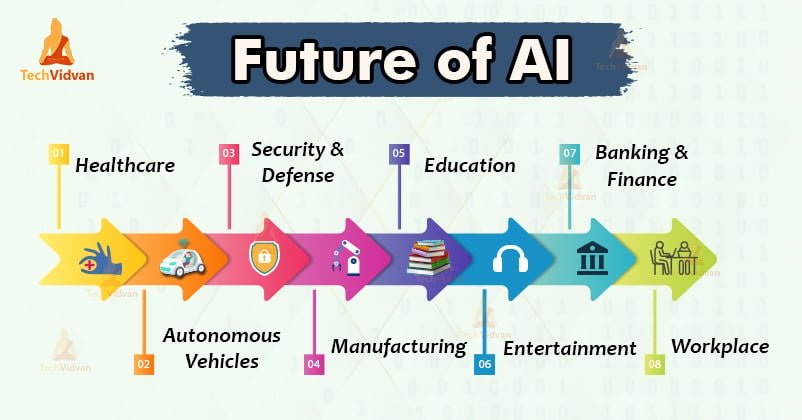
This image is property of techvidvan.com.
Social Impact
Education and Access
AI has the potential to revolutionize education by personalizing learning experiences and increasing access to quality education. Intelligent tutoring systems can adapt to individual students’ needs, providing tailored instruction. Additionally, AI can help bridge the educational divide by providing access to educational resources to underserved communities worldwide.
Healthcare Advancements
AI technologies hold great promise in revolutionizing healthcare. From assisting in diagnosing diseases to developing personalized treatment plans, AI can significantly improve patient outcomes. AI-powered tools can analyze vast amounts of medical data and identify patterns that human doctors might overlook, leading to better and more efficient healthcare delivery.
Human Connection and Emotion
While AI systems are often associated with automation and efficiency, they can also play a crucial role in enhancing human connection and emotional well-being. For example, social robots can provide companionship to the elderly, helping to alleviate loneliness. AI-powered chatbots can offer emotional support and counseling, providing a means for individuals to express themselves and seek guidance.
Environmental Sustainability
Climate Change Mitigation
AI technologies can contribute to mitigating the effects of climate change. By analyzing large datasets and predicting weather patterns, AI systems can assist in developing strategies for reducing greenhouse gas emissions and adapting to the changing climate. Moreover, AI can optimize energy consumption in various sectors, leading to more sustainable practices.
Energy Efficiency
One of the most significant environmental benefits of AI lies in its potential to improve energy efficiency. AI algorithms can optimize energy use in buildings, transportation, and manufacturing, reducing overall energy consumption and carbon emissions. Energy management systems powered by AI can identify inefficiencies and suggest methods for conservation, thereby contributing to a greener future.
Resource Management
Effective resource management is vital for a sustainable future. AI can optimize resource allocation by analyzing data and providing insights to improve efficiency. For example, AI can optimize supply chain logistics, reducing waste and minimizing the environmental impact of transportation. AI-based monitoring systems can also help in the efficient management of water and other natural resources.

This image is property of www.simplilearn.com.
Technological Advancements
Improved Decision-Making
AI technologies can enhance decision-making processes by analyzing vast amounts of data and providing valuable insights. From business strategy to policy formulation, AI systems can assist in making informed and data-driven choices. By leveraging AI capabilities, organizations can improve efficiency, productivity, and overall decision-making outcomes.
Efficient Automation
Automation is a key application of AI that can streamline processes and increase productivity. By automating repetitive and mundane tasks, AI technologies free up human resources to focus on more complex and creative tasks. Intelligent automation across industries can lead to increased efficiency, reduced costs, and improved customer experiences.
Enhanced Collaboration
Collaboration is essential for innovation and progress. AI can facilitate collaboration by enabling real-time communication, information sharing, and knowledge transfer. AI-powered collaboration tools can bring together individuals from different locations, fostering teamwork and accelerating the pace of innovation. By breaking down geographical barriers, AI promotes global collaboration and cooperation.
Governance and Regulation
AI Ethics and Standards
To ensure responsible and ethical AI development and deployment, it is crucial to establish comprehensive AI ethics guidelines and standards. These guidelines should address issues such as privacy, bias, transparency, and accountability. Governments, industry leaders, and AI researchers should collaborate to develop frameworks that prioritize ethical considerations and ensure AI technologies are developed in the best interest of society.
Legal Frameworks
With the increasing influence of AI technologies, laws and regulations must keep pace. Legal frameworks should address the unique challenges posed by AI, such as liability for AI-generated actions and data ownership rights. Clear regulations can provide a sense of security and trust, promoting the responsible and ethical use of AI while minimizing potential risks.
International Cooperation
AI development and governance require international cooperation and collaboration. Given the global nature of AI technologies, it is essential for countries to work together to establish common standards and frameworks. International agreements can facilitate knowledge sharing, address ethical challenges, and ensure a cohesive approach to AI governance that benefits all nations.
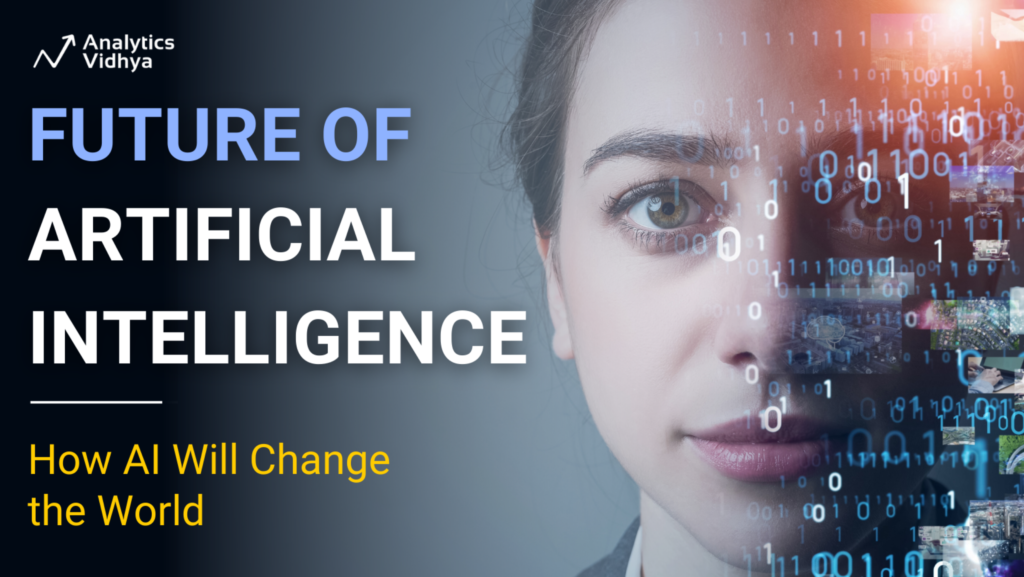
This image is property of cdn.analyticsvidhya.com.
Privacy and Security
Protecting Personal Data
As AI relies heavily on data, it is crucial to protect personal information from unauthorized access and misuse. Stricter data protection regulations, such as the General Data Protection Regulation (GDPR), provide individuals with more control over their data. Additionally, organizations must implement robust security measures to safeguard data from cyber threats and potential breaches.
Preventing Cyber Threats
As AI evolves, so do cyber threats. AI technologies can be utilized by malicious actors for cyberattacks, making it imperative to develop robust defense mechanisms. AI-powered cybersecurity systems can identify and respond to threats in real-time, strengthening overall security posture. Governments and organizations should invest in research and development to stay one step ahead of cyber threats.
Regulating Surveillance
AI technologies enable more advanced surveillance capabilities, raising concerns about privacy and civil liberties. It is essential to strike a balance between security and individual rights. Clear regulations should be in place to prevent the abuse of surveillance technologies, ensuring that their use is lawful, proportionate, and respects privacy rights.
Human-Machine Collaboration
Augmenting Human Abilities
AI technologies should be designed to augment human capabilities rather than replace them. By leveraging AI to assist humans in tasks that require speed, accuracy, or handling huge amounts of data, productivity and efficiency can be significantly improved. Human-machine collaboration can unleash the full potential of AI while embracing the unique qualities and creativity of human intelligence.
Ensuring Human Control
While AI systems can automate processes, it is crucial to ensure human control and oversight. Humans should have the final say in critical decision-making processes and be able to understand, challenge, and override AI-generated outcomes. Responsible AI development should prioritize human values and ethical considerations to prevent the loss of human control over important matters.
Enhanced Creativity and Innovation
AI technologies have the potential to inspire and enhance human creativity and innovation. By leveraging AI-powered tools and algorithms, artists, designers, and innovators can explore new possibilities and push the boundaries of their disciplines. AI can serve as a catalyst for creativity, providing novel perspectives, generating ideas, and augmenting human imagination.
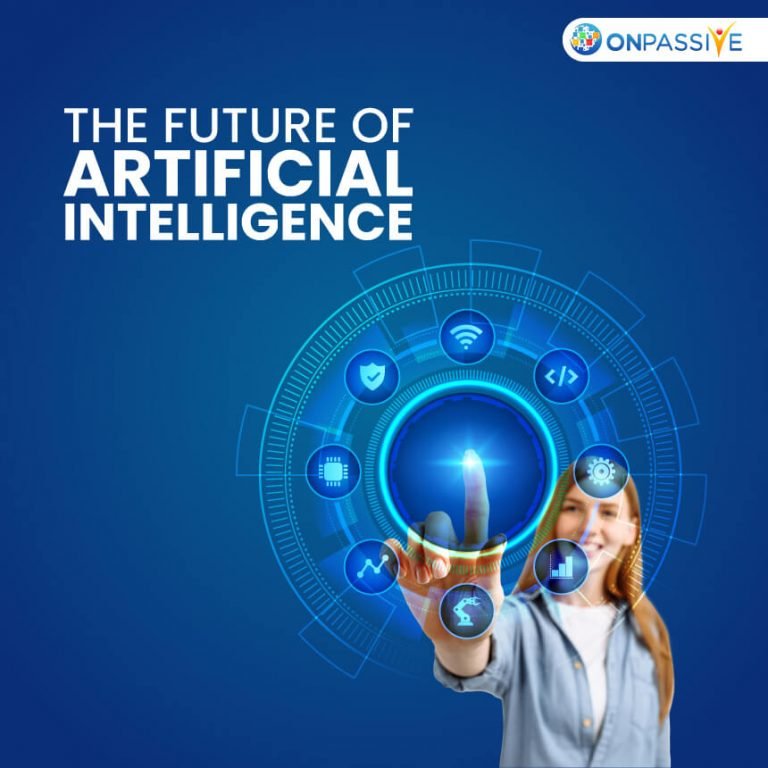
This image is property of www1.onpassive.com.
AI in Healthcare
Diagnosis and Treatment
AI can revolutionize healthcare by assisting in the diagnosis and treatment of diseases. Machine learning algorithms can analyze medical images, such as X-rays and MRIs, and provide accurate and timely diagnoses. AI-powered decision support systems can aid healthcare professionals in developing personalized treatment plans, improving patient outcomes and reducing healthcare costs.
Personalized Medicine
Advancements in AI enable personalized medicine, tailoring treatments to individual patients based on their unique genetic makeup and medical history. AI algorithms can analyze large datasets to identify patterns and predict disease progression, allowing for more targeted and effective interventions. Personalized medicine holds the potential to transform healthcare by shifting from a one-size-fits-all approach to a more individualized and precise model.
Health Monitoring
AI-powered wearable devices and sensors can continuously monitor a person’s health, providing valuable insights into their well-being. From tracking vital signs to detecting early warning signs of diseases, AI can enable proactive and personalized healthcare. Real-time health monitoring can empower individuals to take proactive steps towards preventive care and early intervention, leading to improved overall health outcomes.
AI in Education
Personalized Learning
AI technologies can revolutionize education by enabling personalized learning experiences. Adaptive learning platforms can tailor educational content and activities to individual student needs, maximizing engagement and learning outcomes. By analyzing student performance data, AI algorithms can identify knowledge gaps and suggest customized learning paths, promoting a more effective and efficient educational experience.
Adaptive Assessment
Traditional assessments often fail to capture the full range of a student’s abilities and knowledge. AI-powered adaptive assessment tools can analyze student responses in real-time and adjust the difficulty and type of questions accordingly. This ensures a more accurate assessment of student capabilities and provides actionable insights for educators to adapt their teaching strategies.
Teacher Support and Development
AI can support teachers in various ways, from automating administrative tasks to providing personalized feedback on student performance. AI-powered tools can analyze student work, identify areas for improvement, and suggest tailored interventions. This frees up teachers’ time to focus on higher-order tasks, such as guiding and mentoring students, and facilitates their professional development through data-driven insights and recommendations.
In conclusion, the future we want with AI is one that prioritizes ethical considerations, acknowledges the economic implications, embraces social impact, and ensures environmental sustainability. It is a future where technology advancements are balanced with human values and collaboration. By addressing data privacy and security, mitigating bias, promoting transparency, and fostering human-machine collaboration, we can harness the potential of AI to drive positive change in various domains such as healthcare, education, and governance. With the right regulations, policies, and international cooperation, we can shape an AI future that benefits society as a whole while protecting individual rights and values.

